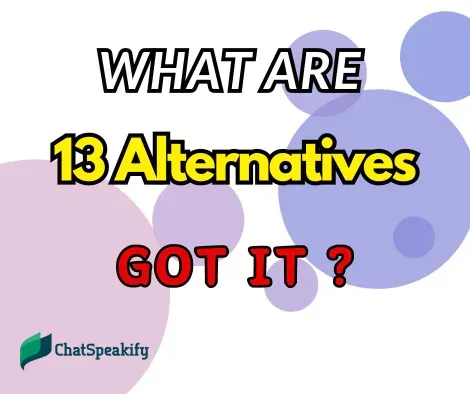Variety is essential in spoken English. Using different words to communicate similar concepts can help you improve your language skills and make your talks more enjoyable. In addition to the all-too-common ‘OK,’ here are 13 local ways to express ‘Got it,’ ‘Sure,’ and ‘Received. These choices may be applied in a variety of settings to keep your communication fresh and lively.
1. Roger That
Context:
“Roger that” denotes understanding and receipt of the message and is frequently used in military and aviation communication..
Example:
“Can you report to the meeting room at 3 PM?”
“Roger that.”
2. Copy
Context:
Similarly derived from military jargon, “Copy” also means that you have read and comprehended the information.
Example:
“We need to finish this report by Monday.”
“Copy.”
3. Understood
Context:
This is a simple and professional approach to acknowledge that you have comprehended the information.
Example:
“Please make sure that the presentation is ready by tomorrow morning.”
“Understood.”
4. Affirmative
Context:
Another phrase from military language is “affirmative,” which means ‘yes,’ indicating agreement or recognition.
Example:
“Do you have everything you need?”
“Affirmative.”
5. Gotcha
Context:
A more casual way of saying “I got it” or “Understood.”
Example:
“Remember to send the email before you leave.”
“Gotcha.”
6. Will Do
Context:
Indicates that you will take action on the given instructions.
Example:
“Could you handle the client call this afternoon?”
“Will do.”
7. Absolutely
Context:
A more enthusiastic way to agree or show that you’ve received and understood the message.
Example:
“Can you help me with this project tomorrow?”
“Absolutely.”
8. No Problem
Context:
This is a relaxed way of indicating that you are fine with the request or instructions.
Example:
“Can you cover my shift this weekend?”
“No problem.”
9. Sure Thing
Context:
A friendly and casual way to show you agree or will comply with the instruction.
Example:
“Could you pass me the salt?”
“Sure thing.”
10. Consider It Done
Context:
A confident response indicating you will take care of the task immediately or as soon as possible.
Example:
“I need this document revised by tonight.”
“Consider it done.”
11. Absolutely
Context:
Expresses strong agreement and shows that you are fully committed to the task.
Example:
“Are you coming to the team meeting?”
“Absolutely.”
12. Sounds Good
Context:
This phrase is perfect for informal settings and signifies that you agree with the suggestion or plan.
Example:
“Let’s have lunch at 12:30?”
“Sounds good.”
13. Aye Aye
Context:
A nautical term used to acknowledge and confirm instructions from a superior.
Example:
“Make sure the decks are clean by morning.”
“Aye aye, captain.”
Conclusion
These alternatives not only provide you with new methods to recognize instructions or agree with someone, but they also add flavor and variety to your spoken English. Incorporating these words into your regular discussions can help you seem more natural and sophisticated. Next time you want to say “OK,” try one of these phrases instead.
Embrace these idioms to expand your vocabulary and make your talks more interesting and entertaining. Happy speaking!
